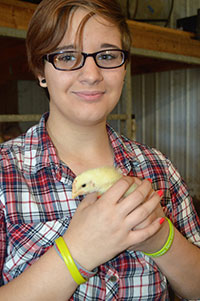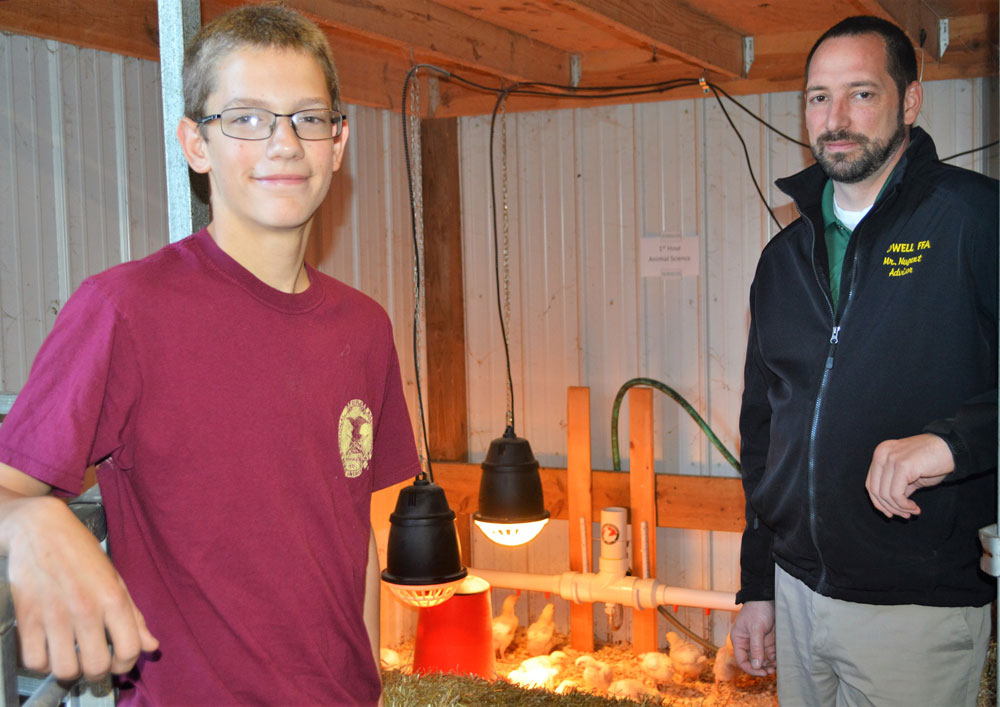Elliott Kelley is no stranger to life on a farm, so he has no problem doing double chicken duty at school. Especially now that the high school freshman could be earning college credits for it.
New this year at Lowell: Students headed to Michigan State University who complete the high school agriscience program and earn a state FFA degree their senior year can also earn six MSU credits.
Students don’t have to participate in FFA to take Kevin Nugent’s class, and “whether they take advantage (of the MSU credit offer) or not, they won’t have missed out on this opportunity,” he said.
Elliott’s family grows corn and soybeans, and raises chickens, heifers, steer, rabbits and turkeys. “And we’re going to be getting pigs this weekend,” he said.

During their daily trips to the Wittenbach/Wege Agriscience and Environmental Education Center, Elliott and his classmates work in pairs to tend to their designated broods. Chores include making sure they have fresh feed and water, regular weight checks and keeping their coops clean.
While Elliott said his classmates who aren’t typically around chickens every day think they are “really cool and cute, I’m so used to seeing them every day that I just don’t see what they see.”
It’s probably just as well. As part of the agri-biology class, the students are raising meat chickens whose carcasses will be judged in November.
At the Michigan FFA broiler contest, the goal is to raise the biggest and best birds in a five-week time frame. Lowell students have participated in the contest since before Nugent joined the high school staff in 2004.
Other than the contest, goals of the chicken project are to learn and understand proper animal nutrition and health, as well as proper handling of the animals.

“They tend to go hand in hand, since in order to have competitive chickens at the contest, we need to make sure they are healthy and are getting all of the proper nutrition that they need,” Nugent said. “Even if a student never raises chickens or any other animals again, hopefully they will at least have a better understanding of what goes into raising the food that they eat.”
Several FFA members also have taken chicks home to raise on their own.
“They’re going to give it a shot, similar to what we do for fair,” Nugent said. “That gives them an opportunity to take what they have learned in class and try it out.”
The three-trimester class also includes the study of cells, organisms, plants and photosynthesis and DNA.
CONNECT
High School Sideline: Organic Milk
FFA Members Make Hard Work Look Fairly Fun
Learn About the MSU FFA Agriscience Credits










